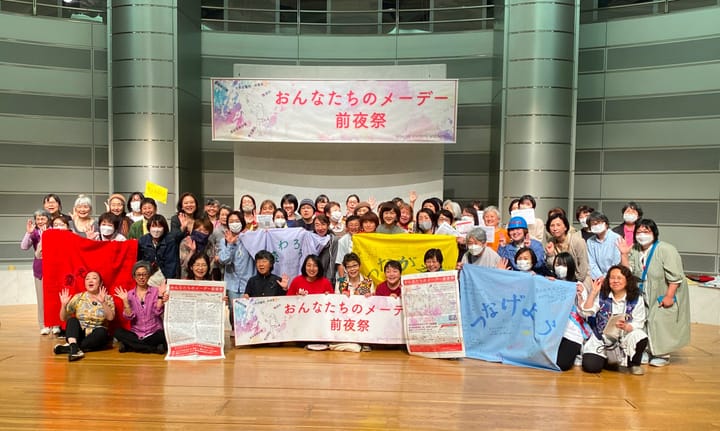Left in The Dark: Lack of support for sex workers during the pandemic pushes some to the brink

The media has covered the struggles of Japanese restaurants, bars and other service industries since the Covid-19 pandemic began in early 2020, but what about sex workers? Thousands of women in Japan who work in call-out services called “delivery health,” charging men for erotic encounters in hotels or homes, find their work has disappeared. The pandemic has decimated the industry, says Kaori Hashimoto, who runs a delivery health business in Osaka. Business fell by 80 percent during the first lockdown in the spring of 2020. “It is still down by a third from before the pandemic,” said Hashimoto (a pseudonym). “Customers are worried and have stopped coming, and many women have returned to their hometowns.”
The story is replicated throughout much of the sex industry in Japan, traditionally a haven for working-class women with few other marketable skills or career prospects. An online 24-hour counseling service for sex workers, Futeras says it has been inundated by calls for help from desperate people. Futeras reported in April 2021 that their consultations quadrupled in 2020, climbing to nearly 3,000 cases the previous year. Many of the callers ask “whether they should go on living,” said Shingo Sakuzume, who set up the counseling service in 2019.

Salaried workers are cushioned from exposure to the impact of Covid-19 but sex workers, who mostly work piecemeal, are especially vulnerable, Sakuzume told the tabloid newspaper Yukan Fuji. The government initially excluded them from a pandemic emergency aid-package but relented after an outcry – yet many workers say the help is stingy and the rules opaque. “Some are financially strapped, others are subjected to discriminatory treatment, and others are socially isolated,” said Sakuzume. “These problems had existed before but have been aggravated by the pandemic.”
Hashimoto is furious, that sex businesses have been excluded from government aid packages during the pandemic, despite the fact that she says she files taxes and complies with the law. Sex shops and love hotels that register as “sex-related establishments” are not eligible for state aid, either, even though they operate under the law. The government, which gave other small businesses one-off payments of up to 2 million yen, and help with rent, blames the “difficulty of gaining citizens’ understanding” for this lack of support.
Hashimoto is not the only business owner up in arms. Tsuyoshi Shito, who owns a string of love hotels in the Northern Kanto region told Abema TV, a video-streaming website: “When we pay taxes, we expect the government to help us out when we’re in the business doldrums. I’m furious that the state seems intent on destroying us rather than helping us out.”
“I thought it was weird that only sex businesses during an emergency would be refused help,” agrees Hashimoto, who suspended her business last spring, in accordance with the government directive. “It seems very unfair.” Her company, which she set up a decade ago, employs four full-time workers and a revolving staff of call girls. In frustration, she has filed a lawsuit against the state. The lawsuit, which began on April 15 at the Tokyo District Court, has been funded by hundreds of supporters who have raised over six million yen. Hashimoto demands compensation of 4.5 million yen, claiming that the government violated the “equality before the law” stipulation under the constitution.
Michiko Kameishi, a lawyer representing Hashimoto, says the state cannot possibly legitimize refusing aid to sex businesses. “It is a violation of equality under Article 14 of the constitution.” The article stipulates that everyone is equal under the law, and bans discrimination on political, economic or any other grounds.
Kameishi says much of the animosity toward sex work is based on misunderstandings. “There are people who think it’s selfish for sex businesses to ask for help because they don’t know that they pay proper taxes – but they do. If that’s the complaint, there are other legitimate businesses that evade taxes.” Another common criticism is that sex businesses are bound up with yakuza gangsters – another misconception, she says. “These days, it benefits businesses more if they announce that they have no connection with yakuza.”
There are nearly 32,000 sex businesses registered in Japan, according to the latest National Police Agency whitepaper. Over 60 percent are delivery health businesses that offer sexual services, which are legal as long as they do not violate the Anti-Prostitution Act. Prostitution is illegal in Japan but other forms of sex work, such as erotic massages and bathhouses are not.
Sex workers are protected when employed by registered businesses, but if they have to work independently, they face more risks. Some do not get properly paid or are forced to provide extra services at no charge. Violence and rape are constant fears. And if working illegally, they cannot ask the police for help.
“People hold negative impressions of the industry,” accepts Kameishi, “but that is beside the legal point. There is a moral position that sex between a married man and woman is the only form of morally righteous sexual conduct, but sex work is work, not pleasure. I know it is difficult for everyone to understand this. We are not trying to change that, but we are trying to point out that it is wrong for the state to exclude this type of business based on (spurious) reasons.”


